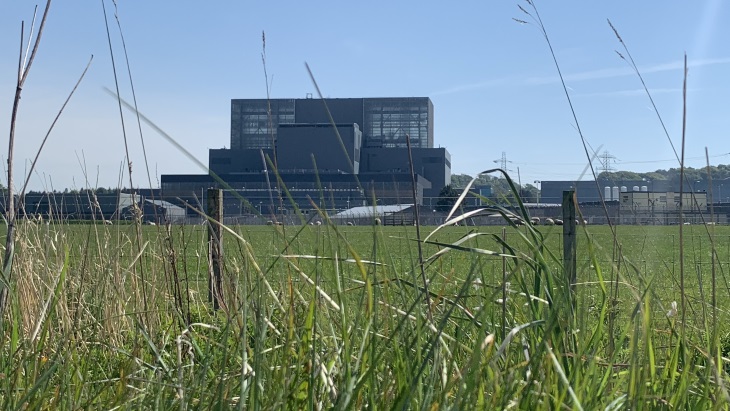Hunterston B started operations in 1976 and in 2012 EDF extended the generating life of the plant to March 2023, with a two-year proviso either side of that date.
Hunterston Reactor 3 (also known as B-7) and Hunterston Reactor 4 (B-8) were taken offline when cracks were found during routine inspections. EDF has said it still expects Hunterston, which is in North Ayrshire, Scotland, to close in 2023.
Reactor 3 and Reactor 4 were taken offline on 9 March and 3 October 2018 to work on issues related to their graphite cores. Following the approval of a safety case with the ONR, Reactor 4 was returned to service on 25 August 2019 until 10 December 2019.
Hunterston Reactor 3 had been due to restart on 20 August, but that was changed to 30 August. The restart date for Reactor 4 remains 17 September.
Matt Sykes, managing director for EDF Generation, said today: "Hunterston B has quietly delivered a major contribution to the UK for more than 40 years. It has far exceeded its original remit and, over its lifetime, gone on to safely produce enough low carbon energy to power the whole of Scotland for eight years."
“We didn't know back in the 1960s, when these plants were designed, just how important low-carbon energy would become. We owe all those that designed, built, commissioned and still operate the station a huge debt of gratitude. Our focus is on continuing to safely deliver the last period of power generation and then transition the station into decommissioning."
Once Hunterston B stops generating power, EDF will take on the next task of defuelling the station, which is the first stage of the nuclear decommissioning process. Preparations for defuelling have been under way for a long time, EDF said, and the process is expected to take a few years to complete.
Tom Greatrex, CEO of the UK’s Nuclear Industry Association, said news of the restart this coming weekend was "a boost for emissions free power".
"Earlier this month, despite sunny weather and low summer demand, the UK had to burn coal to generate power. Hunterston - with its operating life having been extended by our engineering expertise here in the UK - provides low-carbon power whatever the weather and over its lifetime has generated the equivalent of eight years of total power demand in Scotland, saving more than 100 million tonnes of carbon," he said.
"With Hunterston's move to decommissioned confirmed for January 2022, the urgency of the need to invest in new capacity to provide secure, reliable and always available low carbon power is clear. Without new nuclear power, the UK cannot meet its net-zero target," he added.





_53504.jpg)

_13505.jpg)
_87975.jpg)






